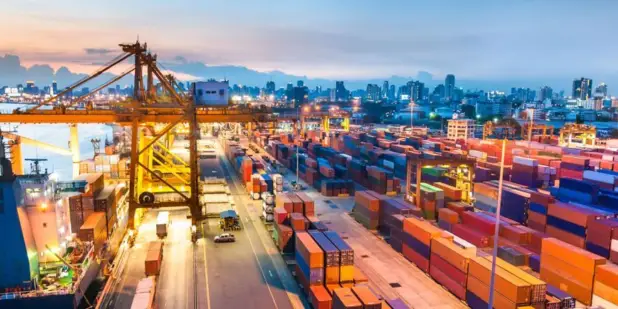What is an EAC Certificate?
Simply explained: meaning, requirements and advantages:
The EAC certificate (Eur-Asian Conformity) is official proof that a product complies with the applicable technical regulations (TR CU / TR EAEU) of the Eurasian Economic Union (EAEU).
The certification confirms compliance with safety, health and environmental standards and is required by law for products to be sold in the EAEU states (Russia, Belarus, Kazakhstan, Armenia and Kyrgyzstan).
What types of EAC Approvals are there?
EAC certificate: For safety-relevant or high-risk products, e.g. machines, protective equipment, pressure vessels or ATEX devices.
EAC declaration: For low-risk products, e.g. clothing, shoes, textiles, furniture, food or food additives.
Both forms are necessary in order to import products in compliance with the law and sell them in the EAEU member states.
When do you need an EAC Certificate?
Certification must be completed before exporting or placing on the market. Without a valid EAC approval, neither import nor sale in the EAEU area is permitted. Ideally, the application should be made before production or shipment to avoid delays in delivery.
Who issues an EAC Certificate?
Only accredited certification bodies registered in the EAEU member states may issue EAC conformity assessments.
The applicant must be a company based in an EAEU member state, e.g. an authorized representative, an importer or a distributor.
How does EAC Certification Work?
Step-by-step procedure:
- Compilation of the technical documentation
- Application to a certification body
- Product tests in recognized laboratories
- Factory inspections if necessary
- Issue of the certificate or declaration
- Registration in the official EAEU certification register
- Affixing the EAC mark to the product and packaging
How much does an EAC Certificate Cost?
The costs depend on the product type, risk, scope of testing and number of variants.
Typical price range:
- Simple products: from €1,000 to €7,000
- Complex or safety-relevant products: from €5,000 to €25,000
Additional costs may be incurred for laboratory analyses, factory inspections or registration (approx. €50).
Which Products require EAC Certification?
The most common product groups requiring certification include:
- Electrical appliances & household appliances
- Personal protective equipment (PPE)
- Machinery & industrial equipment
- Vehicle technology & spare parts
- Cosmetics & hygiene products
- Furniture & building materials
- Toys & children's products
- Textiles & Clothing
- Food & packaging
Where does the EAC Certification take Place?
Certification is carried out exclusively in an EAEU member state. The European EAC certification service providers usually have a branch in the EAEU states or work together with the Eurasian certification bodies.
The EAC certificate is valid in all five EAEU states and enables the free movement of goods within the Eurasian Customs Union (CU).
Where can I Export to after Approval?
With a valid EAC certificate, products may be legally exported and sold in the following countries:
- Kazakhstan (KZ)
- Kyrgyzstan (KG)
- Armenia (AM)
- Belarus (BY)
- Russia (RU)
EAC certification is therefore the key to accessing over 180 million consumers in the EAEU member states.
Why is EAC Certification Important?
- It is legally binding
- It enables legal EAEU market access
- It ensures product quality and safety
- It protects consumers and the environment
- It simplifies customs clearance and transportation
Who is Responsible for EAC Certification?
The manufacturer or, in the case of companies outside the EAEU, an authorized representative based in a member state is always responsible. Only this person can apply for the certificate and is liable for compliance with the TR CU/EAEU regulations.


